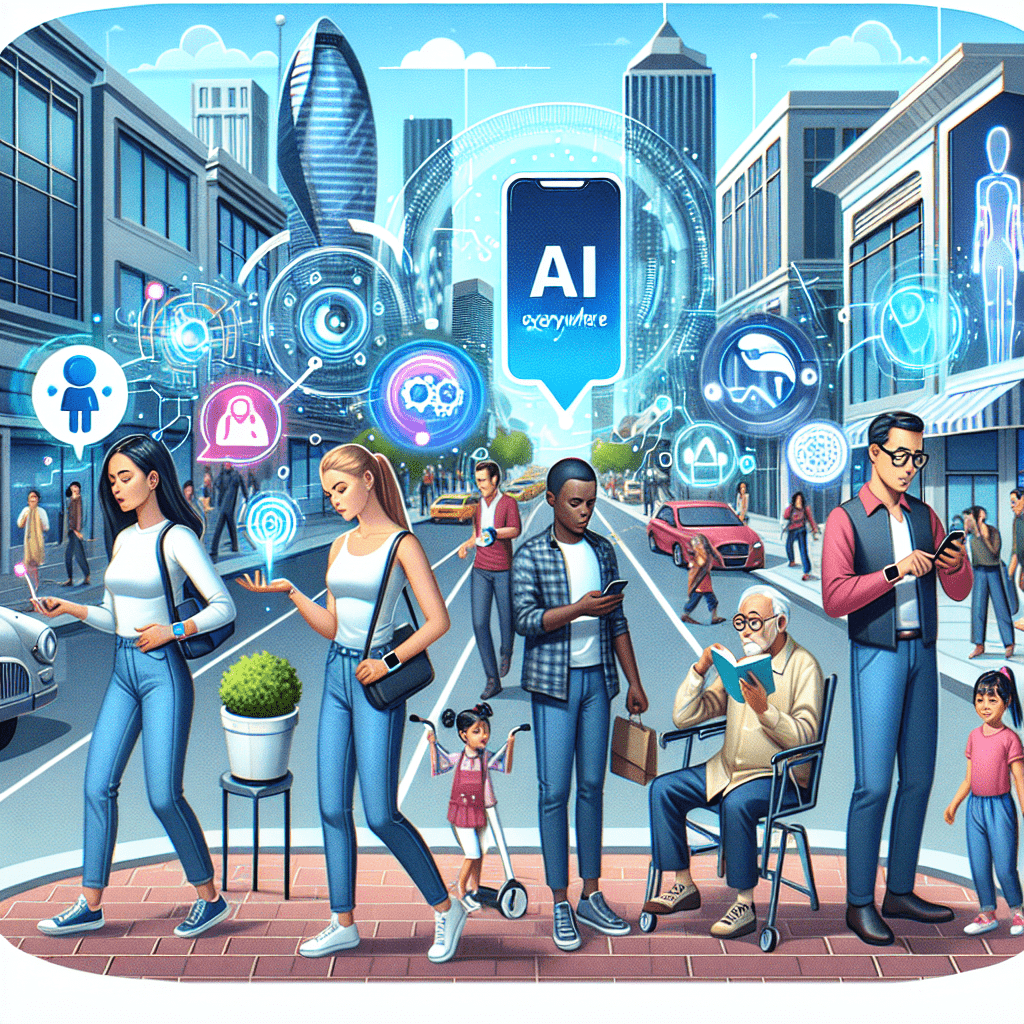Artificial Intelligence (AI) is no longer a concept confined to science fiction movies and futuristic novels. It has become an integral part of our everyday routines, from the moment we wake up to the time we go to bed. AI is transforming the way we live, work, and interact with the world around us. In this article, we will explore how AI is influencing various aspects of our daily lives and how it is poised to become even more pervasive in the future.
The Role of AI in Our Daily Lives
AI has already found its way into numerous facets of our daily routines, often without us even realizing it. From virtual assistants like Siri and Alexa that help us set reminders and answer questions, to recommendation algorithms that suggest movies, music, and products based on our preferences, AI is all around us. It is also being used in healthcare to help diagnose diseases, in transportation to improve efficiency, and in security to enhance safety measures.
AI in Healthcare
One of the most significant applications of AI in healthcare is in medical imaging. AI algorithms can analyze medical images such as X-rays and MRIs with incredible accuracy, helping doctors detect diseases at an early stage. AI is also being used to personalize treatment plans for patients based on their genetic makeup and medical history, leading to more effective and tailored healthcare.
AI in Transportation
In the transportation sector, AI is revolutionizing the way we move from one place to another. Autonomous vehicles are no longer a distant dream but a reality, with companies like Tesla and Google developing self-driving cars that rely on AI to navigate roads safely. AI is also used in traffic management systems to optimize traffic flow and reduce congestion, making our commutes smoother and more efficient.
AI in Security
Security is another area where AI is making a significant impact. AI-powered facial recognition technology is being used in airports, banks, and other high-security locations to identify potential threats and enhance security measures. AI algorithms can analyze vast amounts of data in real-time to detect anomalies and alert security personnel to potential risks, helping to keep us safe in an increasingly complex world.
The Future of AI
As AI continues to evolve and improve, its presence in our everyday lives is only set to grow. From smart homes that adjust lighting and temperature settings based on our preferences to AI-powered robots that assist us with household chores, the possibilities are endless. AI is also being used to develop personalized learning platforms that cater to individual learning styles, revolutionizing the way we educate ourselves.
With advancements in AI technology such as machine learning and natural language processing, the potential applications of AI are limitless. From virtual reality experiences that transport us to new and exciting worlds to personalized healthcare solutions that monitor our health in real-time, AI is set to transform every aspect of our lives in ways we can only begin to imagine.
Conclusion
AI is no longer a distant dream but a reality that is transforming the way we live, work, and interact with the world around us. From healthcare to transportation to security, AI is making our everyday routines more efficient, safer, and personalized. As AI continues to evolve, its impact on our lives will only grow, bringing about a future that is smarter, safer, and more connected than ever before.
FAQs
What is AI?
AI stands for Artificial Intelligence, which refers to the simulation of human intelligence processes by machines, especially computer systems. AI encompasses a wide range of technologies such as machine learning, natural language processing, and computer vision.
How is AI used in healthcare?
AI is used in healthcare for a variety of applications, including medical imaging, personalized treatment plans, and predictive analytics. AI algorithms can analyze vast amounts of medical data to help doctors diagnose diseases more accurately and develop personalized treatment plans for patients.
What are some examples of AI in everyday life?
Some examples of AI in everyday life include virtual assistants like Siri and Alexa, recommendation algorithms that suggest movies and products, and autonomous vehicles that rely on AI to navigate roads safely. AI is also used in security systems to enhance safety measures and in smart homes to automate tasks such as adjusting lighting and temperature settings.
Quotes
“The development of full artificial intelligence could spell the end of the human race.” – Stephen Hawking
#Artificial #Intelligence #Integral #Part #Everyday #Routines


